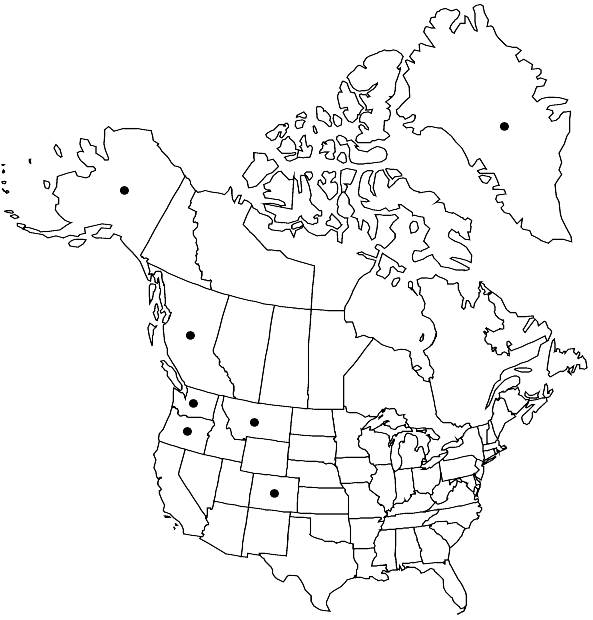Difference between revisions of "Bucklandiella macounii subsp. alpina"
in R. Ochyra et al., Cens. Cat. Polish Mosses, 146. 2003,.
FNA>Volume Importer |
FNA>Volume Importer |
(No difference)
| |
Revision as of 21:52, 16 December 2019
Plants less robust, more reddish brown or reddish green, lustrous. Leaves straight, erect-imbricate, not contorted, (1.5–)2.4–3(–3.2) × (0.3–)0.5–0.7 mm; awns often reddish or yellowish hyaline, to 0.2 mm, moderately spinulose, recurved when dry; costa 60–85 µm wide near the base, 40–65 µm wide distally; basal marginal border consisting of about 20 short, transparent, not or moderately sinuose cells; medial and distal laminal cells quadrate to short-rectangular, 7–23 × 8–9 µm, smooth or moderately pseudopapillose. Capsule ovoid, 1–1.75 × 0.5–0.7 mm; peristome teeth to 380–450 µm.
Habitat: Hydrophilous, acidic or slightly calciferous rocks and stones along mountain rivers and streams, sloping rocks with trickling water and stony ground in late snow patches
Elevation: moderate to high elevations (700-2300 m)
Distribution

Greenland, B.C., Alaska, Colo., Mont., Oreg., Wash., Europe, e Asia (Japan), Atlantic Islands (Iceland).
Discussion
Subspecies alpina has a distribution in the Pacific Northwest similar to that of the type subspecies, although its geographical range extends to the Aleutian Islands. This subspecies shares most structural characters of subsp. macounii but it is generally a less robust plant, with narrower costae, longer awns, distal laminal cells, and peristome teeth, and shorter capsules. It differs largely in the overall appearance of the plants, which are usually distinctly glistening and more reddish, and the leaves are not crispate.
Selected References
None.